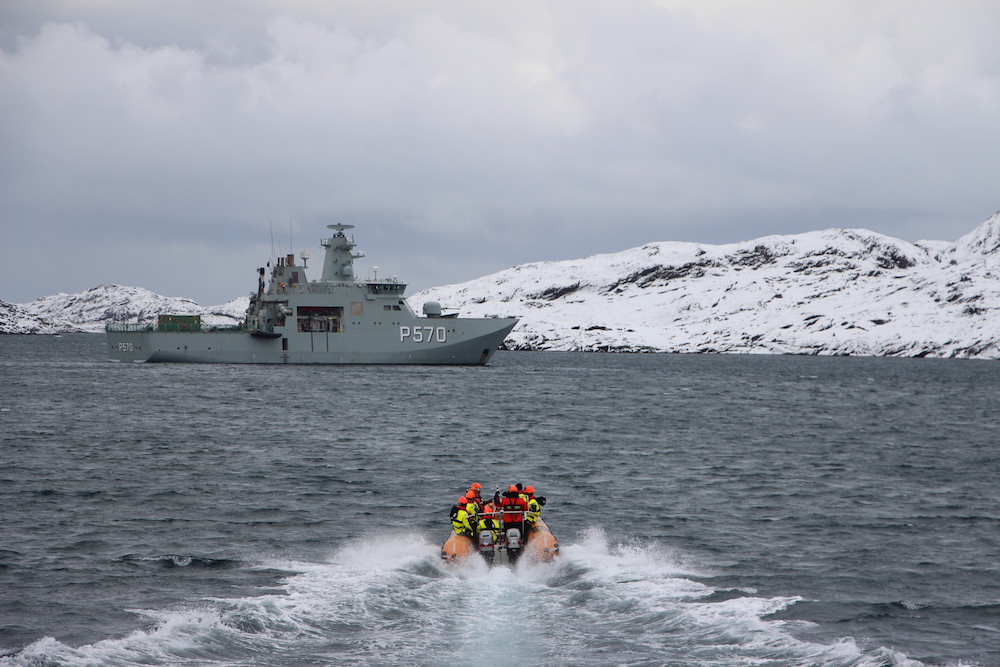Copenhagen is ignoring Russian, Chinese activity in the Arctic, lawmakers warn
The Danish government's annual state-of-the-Arctic report made no mention of Russia’s military resurgence or China’s emerging interests in the region.

Members of the Danish national assembly have roundly criticised the government for failing to pay sufficient attention to threats to stability in the region after it published an annual state-of-the-Arctic report that contained no mention of Russia’s military resurgence or the challenge posed by China’s emerging interests.
The five-page document, released on Oct. 3, details Denmark’s participation in Arctic affairs internationally, as well as which goals it is currently pursuing.
Lawmakers discussing the report on Tuesday had praise for Copenhagen’s decision to make the Arctic one of its main foreign policy priorities. They also welcomed recent achievements, such as the reaffirmation this May of the Ilullisat Declaration, pledging Arctic states to solve disputes in the region peacefully. However, they questioned whether the government was living up to its self-defined status as an Arctic great power by not taking a position on some of the region’s most pressing political challenges.
[U.S. military warns against Russian Arctic expansion]
Aleqa Hammond, one of Greenland’s two representatives in the assembly, noted with worry that an increase in military activity on all sides had been left out, despite the developments turning Greenland into “a flashpoint in a new, cold, Arctic war.”
“Even though we’ve reaffirmed the Ilulissat Declaration, there is an obvious military build-up in process,” she said. “We see the British stationing troops in northern Norway. We see Russia arming the Arctic. We see the Americans expressing their interest in dual-use airports in Greenland. What is the Kingdom of Denmark’s response to this build-up in the region?”
Copenhagen has joined with other NATO and western powers in taking a hard line against Moscow’s 2014 annexation of Crimea and its suspected involvement in the conflict in eastern Ukraine. It has also been critical of Russian activity in Syria and its suspected involvement in the poisoning of defected Russian spy Sergei Skripal in the UK this spring.
[Amid tariff jitters, Alaska leaders say China-Alaska LNG relationship is a long-term ‘win-win’]
FE, the external intelligence agency, has repeatedly detailed the potential risk of Russian and Chinese presence in the Arctic. But while Copenhagen has taken active steps limit Chinese interests in Greenland, it maintains a conciliatory line with Moscow in the North.
“It is still my impression that it is in Russia’s interests not to let international conflicts spill over into the region. And that’s all I can say about the matter at this time,” Anders Samuelsen, the foreign minister, said.
Describing Russia’s activities in the Arctic and beyond as “the elephant in the room” in the Arctic, Sjúrður Skaale, a Faroese member of the assembly, questioned whether that approach was viable. He recognised, however, that Copenhagen’s options were limited.
“How does Denmark hope to strike a balance? You can be naive and not look at the conflict in the face and collaborate and collaborate and collaborate a little more until you’ve gone too far. Or you can address the problem and risk not being able to collaborate at all. That’s what you call a lose-lose situation.”